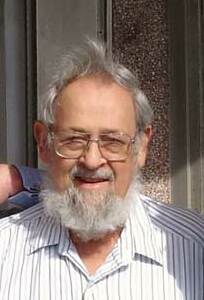Related Research Articles

Asperger syndrome (AS), also known as Asperger's syndrome, formerly described a neurodevelopmental disorder characterized by significant difficulties in social interaction and nonverbal communication, along with restricted and repetitive patterns of behavior, interests, and activities. The syndrome has been merged with other disorders into autism spectrum disorder (ASD) and is no longer considered a stand-alone diagnosis. It was considered milder than other diagnoses that were merged into ASD due to relatively unimpaired spoken language and intelligence.
The American Psychiatric Association (APA) is the main professional organization of psychiatrists and trainee psychiatrists in the United States, and the largest psychiatric organization in the world. It has more than 38,000 members who are involved in psychiatric practice, research, and academia representing a diverse population of patients in more than 100 countries. The association publishes various journals and pamphlets, as well as the Diagnostic and Statistical Manual of Mental Disorders (DSM). The DSM codifies psychiatric conditions and is used mostly in the United States as a guide for diagnosing mental disorders.
Edwin Fuller Torrey, is an American psychiatrist and schizophrenia researcher. He is associate director of research at the Stanley Medical Research Institute (SMRI) and founder of the Treatment Advocacy Center (TAC), a nonprofit organization whose principal activity is promoting the passage and implementation of outpatient commitment laws and civil commitment laws and standards in individual states that allow people diagnosed with severe mental illness to be involuntarily hospitalized and treated throughout the United States.

The National Alliance on Mental Illness (NAMI) is a United States-based nonprofit organization originally founded as a grassroots group by family members of people diagnosed with mental illness. NAMI identifies its mission as "providing advocacy, education, support and public awareness so that all individuals and families affected by mental illness can build better lives" and its vision as "a world where all people affected by mental illness live healthy, fulfilling lives supported by a community that cares". NAMI offers classes and trainings for people living with mental illnesses, their families, community members, and professionals, including what is termed psychoeducation, or education about mental illness. NAMI holds regular events which combine fundraising for the organization and education, including Mental Illness Awareness Week and NAMIWalks.

Robert Charles Wright is an American lawyer, businessman, lobbyist, and author. He is a former NBC executive, having served as president and CEO from 1986 to 2001, and chairman and CEO from 2001 until he retired in 2007. He has been credited with overseeing the broadcast network's expansion into a media conglomerate and leading the company to record earnings in the 1990s. Prior to NBC, he held several posts at General Electric in the 1960s, 70s and 80s. He served as President and CEO of GE Capital, GE Financial Services 1983 to 1986 and served as GE's vice chairman until he retired from that role in 2008.

Diagnoses of autism have become more frequent since the 1980s, which has led to various controversies about both the cause of autism and the nature of the diagnoses themselves. Whether autism has mainly a genetic or developmental cause, and the degree of coincidence between autism and intellectual disability, are all matters of current scientific controversy as well as inquiry. There is also more sociopolitical debate as to whether autism should be considered a disability on its own.

The autism rights movement, also known as the autistic acceptance movement, is a social movement allied with disability rights that emphasizes a neurodiversity paradigm, viewing autism as a disability with variations in the human brain rather than as a disease to be cured. The movement advocates for several goals, including greater acceptance of autistic traits and behaviors; reforms of services - i.e. services that focus on improving quality of life and well-being instead of suppression and masking of autistic traits that are adaptive or not harmful or imitations of social behaviors of allistic (non-autistic) peers ; the creation of social networks and events that allow autistic people to socialize on their own terms; and the recognition of the autistic community as a minority group.

Bernard Rimland was an American research psychologist, writer, lecturer, and influential person in the field of developmental disorders. Rimland's first book, Infantile Autism, sparked by the birth of a son who had autism, was instrumental in changing attitudes toward the disorder. Rimland founded and directed two advocacy groups: the Autism Society of America (ASA) and the Autism Research Institute. He promoted several since disproven theories about the causes and treatment of autism, including vaccine denial, facilitated communication, chelation therapy, and false claims of a link between secretin and autism. He also supported the ethically controversial practice of using aversives on autistic children.
The Treatment Advocacy Center (TAC) is a U.S. non-profit organization based in Arlington, Virginia, originally announced as the NAMI Treatment Action Centre in 1997. The TAC was subsequently directed by psychiatrist E. Fuller Torrey and identifies its mission as "dedicated to eliminating barriers to the timely and effective treatment of severe mental illness". The organization is most well-known for proposed laws, policies, and practices regarding legally compelled outpatient services or outpatient commitment for people diagnosed with mental illness. The organization identifies its other key issues as "anosognosia, consequences of non-treatment, criminalization of mental illness, psychiatric bed shortages, public service costs, violence and mental illness". Advocates for mental health have criticized TAC for endorsing coercion and forced treatment.

The Combating Autism Act of 2006 is an Act of Congress public law that was passed by the 109th United States Congress and was signed into law by President of the United States George W. Bush on December 19, 2006. It authorized nearly one billion dollars in expenditures over five years, starting in 2007, for screening, education, early intervention, prompt referrals for treatment and services, and research of the autism spectrum disorders of autism, Asperger syndrome, Rett syndrome, childhood disintegrative disorder, and pervasive developmental disorder - not otherwise specified.
The psychiatric survivors movement is a diverse association of individuals who either currently access mental health services, or who have experienced interventions by psychiatry they consider unhelpful, harmful, abusive or illegal.

The Methuselah Foundation is an American-based global non-profit organization based in Springfield, Virginia, with a declared mission to "make 90 the new 50 by 2030" by supporting tissue engineering and regenerative medicine therapies. The organization was originally incorporated by David Gobel in 2001 as the Performance Prize Society, a name inspired by the British governments Longitude Act, which offered monetary rewards for anyone who could devise a portable, practical solution for determining a ship's longitude.
The Autistic Self Advocacy Network (ASAN) is an American 501(c)(3) nonprofit advocacy organization run by and for individuals on the autism spectrum. ASAN advocates for the inclusion of autistic people in decisions that affect them, including: legislation, depiction in the media, and disability services.
The National Empowerment Center (NEC) is an advocacy and peer-support organization in the United States that promotes an empowerment-based recovery model of mental disorders. It is run by consumers/survivors/ex-patients "in recovery" and is located in Lawrence, Massachusetts in Essex County.

Autism Speaks Inc. is an American non-profit autism awareness organization and the largest autism research organization in the United States. It sponsors autism research and conducts awareness and outreach activities aimed at families, governments, and the public. It was founded in February 2005 by Bob Wright and his wife Suzanne, a year after their grandson Christian was diagnosed with autism. The same year as its founding, the organization merged with Autism Coalition for Research and Education. It then merged with the National Alliance for Autism Research in 2006 and Cure Autism Now in 2007.
The Autism Science Foundation (ASF) is a non-profit organization that funds evidence-based autism research and supports autism families. The organization was founded in April 2009 by Alison Tepper Singer, a former senior executive of Autism Speaks and the longest-serving public member of the Interagency Autism Coordinating Committee (IACC), and Karen Margulis London, co-founder of the National Alliance for Autism Research. Both Singer and London are parents of autistic children.
Geraldine Dawson is an American child clinical psychologist, specializing in autism. She has conducted research on early detection, brain development, and treatment of autism spectrum disorders (ASD) and collaborated on studies of genetic risk factors in autism. Dawson is William Cleland Distinguished Professor of Psychiatry and Behavioral Sciences and professor of psychology and neuroscience, former director, Duke Institute for Brain Sciences and founding director of the Duke Center for Autism and Brain Development at Duke University Medical Center. Dawson was president of the International Society for Autism Research, a scientific and professional organization devoted to advancing knowledge about autism spectrum disorders. From 2008 to 2013, Dawson was research professor of psychiatry at the University of North Carolina at Chapel Hill and was chief science officer for Autism Speaks. Dawson also held the position of adjunct professor of psychiatry at Columbia University and is professor emerita of psychology at University of Washington. She is a fellow of the American Psychological Society, American Psychological Association, International Society for Autism Research, and the Society of Clinical Child and Adolescent Psychology.

David William Oaks is a civil rights activist and co-founder and former executive director of Eugene, Oregon-based MindFreedom International.
Diagnosis, treatment, and experiences of autism varies globally. Although the diagnosis of autism is rising in post-industrial nations, diagnosis rates are much lower in developing nations.
The history of autism spans over a century; autism has been subject to varying treatments, being pathologized or being viewed as a beneficial part of human neurodiversity. The understanding of autism has been shaped by cultural, scientific, and societal factors, and its perception and treatment change over time as scientific understanding of autism develops.
References
- ↑ "Autism Speaks and the National Alliance for Autism Research complete merger" (Press release). Autism Speaks. 2006-02-13. Archived from the original on 21 November 2008. Retrieved 2008-11-21.